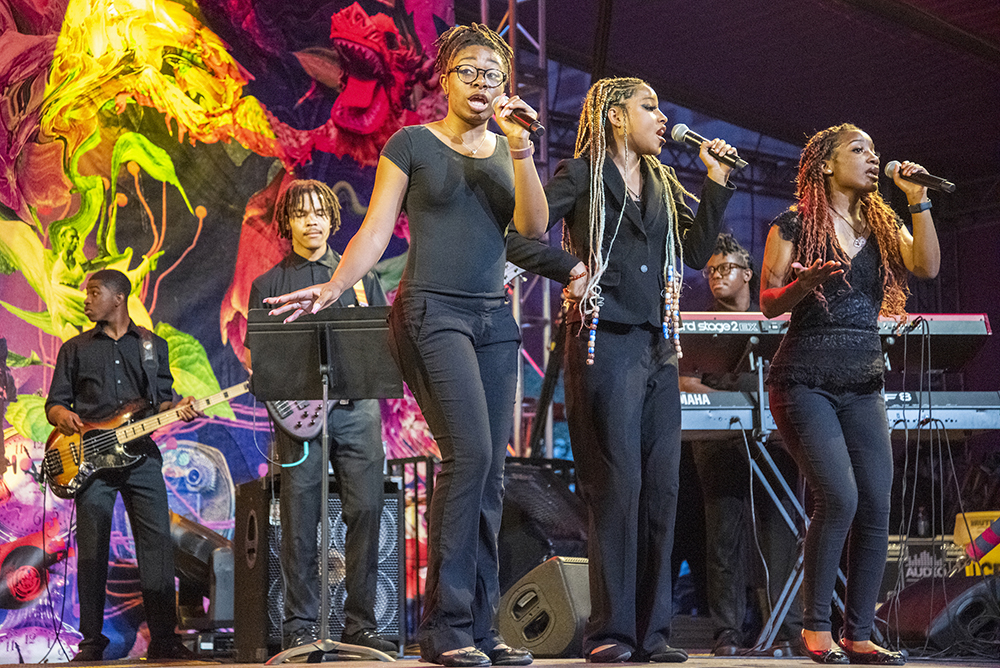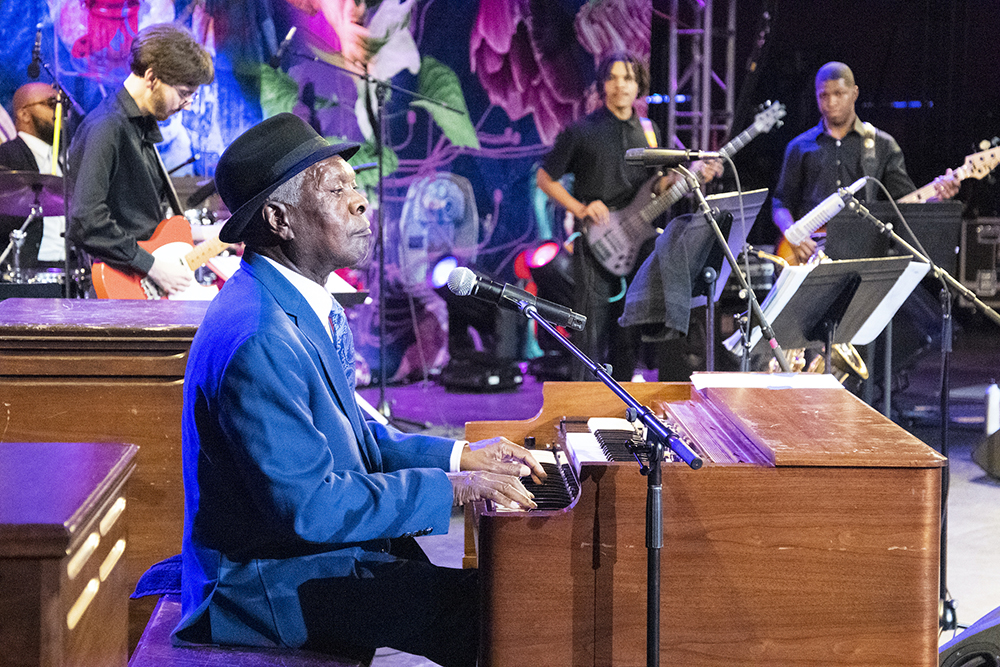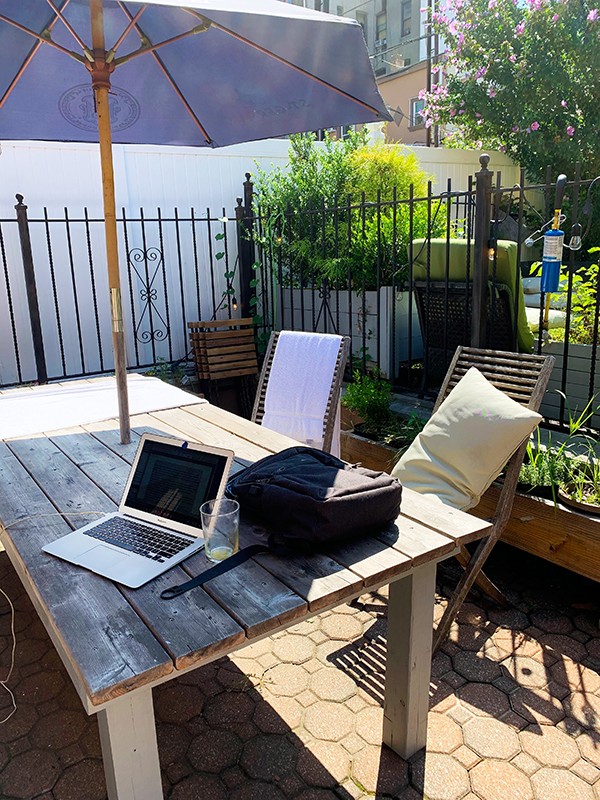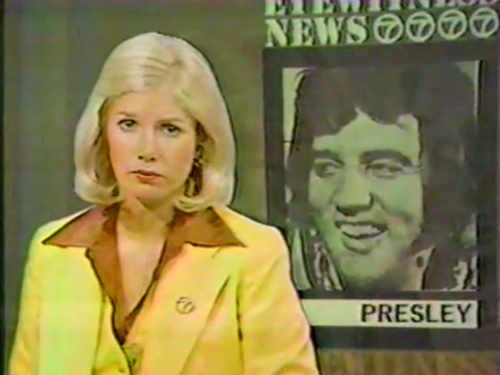Prolific is the type of word reserved for someone like Richard Hell. Born Richard Meyers, Hell dropped out of high school and moved to New York at the age of 17, had his poems published by Rolling Stone and New Directions before he was 21, then grew tired of the whole aspiring-writer thing and became one of the founders of the New York punk scene.
After putting down the typewriter and picking up the bass, Hell played some of the first punk shows on the CBGB stage and released iconic records with his bands the Neon Boys (later Television), the Heartbreakers (featuring Johnny Thunders and Jerry Nolan), and finally Richard Hell and the Voidoids. Hell isn’t on tour supporting his new autobiography, I Dreamed I Was a Very Clean Tramp, but he will be speaking and doing a book signing at the Brooks Museum of Art this Thursday evening. The Flyer caught up with him to ask some questions about his latest project.
Memphis Flyer: You started writing the autobiography in 2006. How did you approach writing it, did you turn to old journals or is it mostly from memory?
Richard Hell: I am lucky that I have a lot of background material to reference. Not only was I publishing writing as a teenager but there was a fair amount of coverage in magazines and papers that was really useful. Plus my mother is a pack rat; she’s kept boxes and boxes of things from my childhood. The homemade pamphlet from when I was eight years that supplied the title for the book came from her. I’m almost neurotically serious about being as accurate as I possibly can, and since the publication of the book I’ve discovered one or two things I’ve got wrong and I fixed them for the paperback. As far as the process of writing, I just winged it and went with the flow. When it came to me reaching back to the earliest days, there was no system or organization, I just trusted that the stuff that I remembered would be relevant.
Was there anything that you’d forgotten that came back to you once you started writing?
It’s always cool to get a flash of recollection of something really vivid that you hadn’t remembered, no matter what it is. When you write something like this you realize that you do kind of just naturally create this narrative of your life as you go along. You know how when you’re first starting to fall in love or something like that, you and the person you’re falling in love with tend to gradually reveal to each other the stories of your past and your life? It was like that. Things you’re proud of, or find amusing, or sometimes ashamed of, they all get revealed when you become close to someone. There’s this whole repertoire of the things that you’ve been through that you remember gradually.
So if you moved to New York City to be a writer, when and why did you pick up the bass?
It was a conjunction of things. When I came to New York at 17 I started to get frustrated, it just seemed really isolated, there wasn’t much audience for young writers. It’s a specialized acquired taste, poetry. It washard to imagine where (being a writer) would lead because I didn’t like having jobs, I sure didn’t want to go to school, and I didn’t want to become a teacher even if I did qualify. I just couldn’t see how to make my life as a poet work, and I wanted my work to be my life. I wanted it to be interchangeable, and at the same time my best friend (>>>>>)was an aspiring professional musician, he was in a similar position and didn’t know where to get started. But anyway, this was when the New York Dolls were just starting, they were an example of these kids who just decided to put themselves out there. They felt like they were just being themselves, not adhering to a pre-established audience, and they were really popular but not about being commercial. They served as an example of how it was possible to get out there and do what excited you and make it work. All of those things taken into account, we got the idea to start a band and so I picked up a bass and started coming up with a way to express how things looked to us in songs, using whatever writing skills I had already developed.
There’s been a lot of talk that most of what’s published in the book on NYC punk Please Kill Me is either embellished or just completely made up. What’s your take on that book?
There’s a lot of like inaccuracy, some of which coming from people twisting stories to serve their own purpose. There’s no fact checking. That being said, being true to the spirit of what went on, in terms of just conveying what it was like it to be there, it’s by far the best picture and the most accurate. There are specific things that aren’t true, overall the whole impression of what went down is really on the mark. I like the book, there are a lot of books about that time and place that are just silly and stupid, and they get credence and stuff gets perpetuated in the press that is just wrong, but Please Kill Me is a great book.
Did you see your autobiography as a way to give a different take on what those parts of your life were really like?
Not really, it came very low on the list of my incentives to write the book. It was good to have the chance here and there to correct false stories that had been distorted and had been reported. The main reason I wrote the book was because I was curious to see what it would add up to if I put this whole sequence side by side. I wanted to see what the picture ended up looking like; I wanted to find out for myself. At any moment you have this perception of who you are and what you’ve been through, you have this vague idea of what the whole picture is like but it just happens in little fragments moment to moment. I wanted to see what it looked like if I made it all into one object.
How is writing different for you, does it provide a spark that playing music didn’t?
I mean the thing for me about writing is that it’s a relief from life and music. Music entails all this other peripheral stuff, touring and being a public figure and having to make a lot of money. It’s not easy to survive as a writer but it’s sure not as expensive as making records. I mean you’ve gotta be conscience of your popularity all the time in music. There are a lot more peripheral demands in music. The thing that I really liked about music was making records, writing songs and making records, but there is so much else you have to do, including feeding all these mouths. It’s not just expensive to finance a music career, you have to work really hard to sell a lot of records to make it feasible. Writing is so much simpler; I’ve always loved writing and loved books. It wasn’t much of a sacrifice to move on, I do sometimes get wistful about all the songs I could have written, but I don’t really have any regrets.
How difficult was it writing an autobiography compared to the works of fiction that you’ve published? Was there anything that was intentionally left out?
Well in some ways it was easier because I had all the material, I didn’t have to wonder where things were going. But that’s the fun part of writing fiction is surprising yourself every day with where the story goes. The main difference is the weird challenges and problems created by writing about yourself. You have to be conscience of the temptations of anyone who has written an autobiography, to have everything you write be self-serving. But at the same time I didn’t want to misrepresent myself, I mean yeah I’m pretty egotistical so I didn’t want to be falsely humble but at the same time I didn’t want to misrepresent anything that happened, so that got a little tricky. It’s interesting to see the responses to the book, the way people react to what I wrote, but I basically feel like I pulled it off. I’m satisfied with how I dealt with that problem. I think the book is a fair representation of what happened and who I am. I said a lot of ugly things, one odd thing is that people sometimes talk about what I creep I am. Maybe not that word but it boils down to that, sometimes people actually do say creep, but often enough people don’t take into account that I chose what to say. They say that I am a creep because I’m calling myself a creep. It’s not that I’m calling myself ugly but I chose to say those things and to reveal those things about myself. I could have done it differently.
Do you think that people who don’t know you as someone who shaped American punk rock will still enjoy the book?
I will flatter myself and say that the ones who are literally minded will enjoy it, I think it’s a good book (laughs). Part of the motivation was to describe what a life like mine was like, what it was like to be an aspiring young artist in NYC in the 70s. A lot of the great works in history are about the young person coming to the city to create their life. It’s an inherently interesting subject. It is almost just incidental that it has to with music. I don’t even pick up the guitar until a third way through the book.
In the book you talk about how the Sex Pistols owe more than a little to you for your look that they adopted through there manager Malcolm McLaren. What are the differences between a statement like “I belong to the blank generation” as opposed to “Anarchy in the UK.”
I don’t really think about either of those things, I wrote that song and I put it out into the world, But I don’t really know how to answer because I’m not a student of the Sex Pistols.
Are you a fan of any rock and roll memoirs or autobiographies by musicians? Is there anyone from that New York Scene that you think needs to write a book?
I think please kill me is the best book easily. It’s true there are a lot of mistakes on it, I disagree with a lot of the emphasis, certain people get more attention than what is warranted, but still it’s by far the best if you’re looking for a fan literature.
An Evening With Richard Hell
Memphis Brooks Museum of Art
Thursday, October 17th, 7 p.m.
$6 museum members/$8 nonmembers



